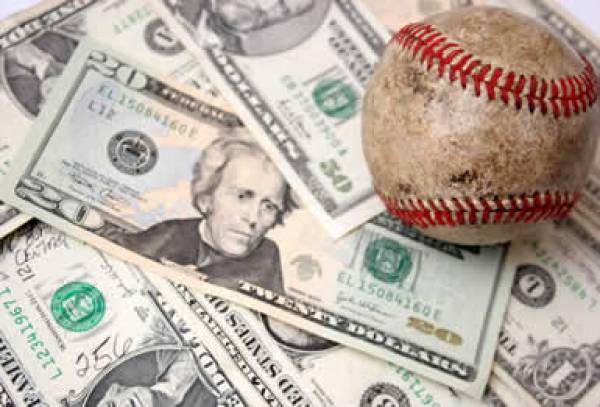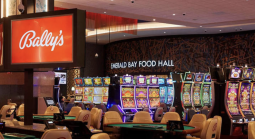Dorfman: Why Shouldn't NJ Have Sports Betting?

by Sid Dorfman/For the Star-Ledger
Public morality had nothing to do with New Jersey's rejection of sports gambling back in 1993, state Sen. Ray Lesniak (D-Union) tells me.
It was pure partisan politics.
Since morality is often what politics says it is, the senator has a point.
As background:
Back in 1993, Congress gave New Jersey a one-year window in which to vote on sports betting. New Jersey already had a bottomless array of legal ways for separating the public from its money, but sports betting would have been the ultimate vacuum.
What was required of New Jersey was a special referendum. If the year expired without a vote, the opportunity was gone forever. Did the public want it to expire as a flare-up of morality?
Not if you ask Lesniak, a veteran legislator from the 20th legislative district. Politics, not morality, he says, was at work in 1993, disagreeing with my own thought that a public's conscientious objection to more gambling was the inspiration.
In 1993, in the process of electing Republican Christie Whitman as governor, a major GOP campaign strategy was to block the sports referendum, so that the urban vote would be small. The theory was that a small urban turnout would mean a small and defeating vote for gambling.
That assumption was cited in a Star-Ledger news story dealing with Whitman's brother, Webster Todd Jr. Appearing before attorneys for a Democratic Party investigation into the election, Todd, who was his sister's campaign advisor, admitted in sworn testimony that the Republicans sought to keep sports betting off the ballot so that the city vote on the election would be light.
The GOP figured it could swing the vote to Whitman if it kept the vote light in Newark, Camden and other cities. There was no explanation why the strategy should work, except that it did. Whitman's margin of victory was a mere 26,093 out of 2.4 million votes cast.
Whitman first had declared that she opposed sports betting but favored letting the voters decide. Later, she also opposed the referendum.
As a corresponding issue in that 1993 campaign, the Democrats charged that the Republicans spent $500,000 so that black clergymen would not urge their congregations to vote.
Actually, charges and counter-charges created a typical election campaign, or what Lesniak calls partisan politics. Bottom line: No referendum was authorized by the Assembly, and the opportunity for sports betting disappeared forever.
As a huge measure of irony, a poll taken by the Casino Association during the campaign declared that 80 percent of New Jersey residents favored a referendum on sports betting. The prospect was that New Jersey would be the eastern version of Las Vegas, tapping into what the FBI once estimated to be a $40 billion business conducted by the crime families of our democracy.
Delaware, one of the four states originally eligible for sports betting then, did not implement its privilege until recently, although there will be some legal challenges to defeat it. After all, in a democracy, nothing should be unanimous.
New Jersey, which has plenty of competition, as it is, from neighboring casino betting, is now facing a big threat from Delaware to siphon off bettors from the Garden State.
It's not as if sports betting doesn't exist in New Jersey, but the state gets no financial benefit from it. Bookmakers do. They don't need permission. Betting on a football weekend in New Jersey simply enriches the bookmakers, who provide easy access, and even more appealingly, give credit, which casinos don't.
So, chasing tax benefits to the state (probably 8 percent) over morality, what would it take for New Jersey to get sports betting?
From Sen. Lesniak:
"I've been trying to get sports betting for years. First, I tried to get the N.J. Congressional delegation to move on repealing the ban but got no support, except from Rep. Frank Pallone Jr. (D-6th). Apparently they don't want to buck the sports leagues and U.S Senate Majority Leader Harry Reid, who is from Nevada, one of the world's biggest gambling palaces.
"I tried to get the New Jersey casinos to lobby Congress for a repeal, but other than support from Donald Trump, nothing came of it. They all have Nevada casinos and want to protect the monopoly they have there.
"Finally, I took matters into my own hands last March and filed suit in federal District Court to declare the federal ban unconstitutional. My law firm is handling the case pro bono."
Either Congress has to repeal the ban or the court has to declare it unconstitutional. Then the New Jersey Legislature would have to pass a Constitutional amendment to be approved by the voters.
Obviously a long shot. Congress happens to have its attention focused these days on more weighty matters, like health and jobs, and not likely to deal eagerly with a gambling issue.
Further, at the moment, jobless folks are not a fertile ground for gambling.
But as Empty Pockets Harry would urge, it's worth a shot.













